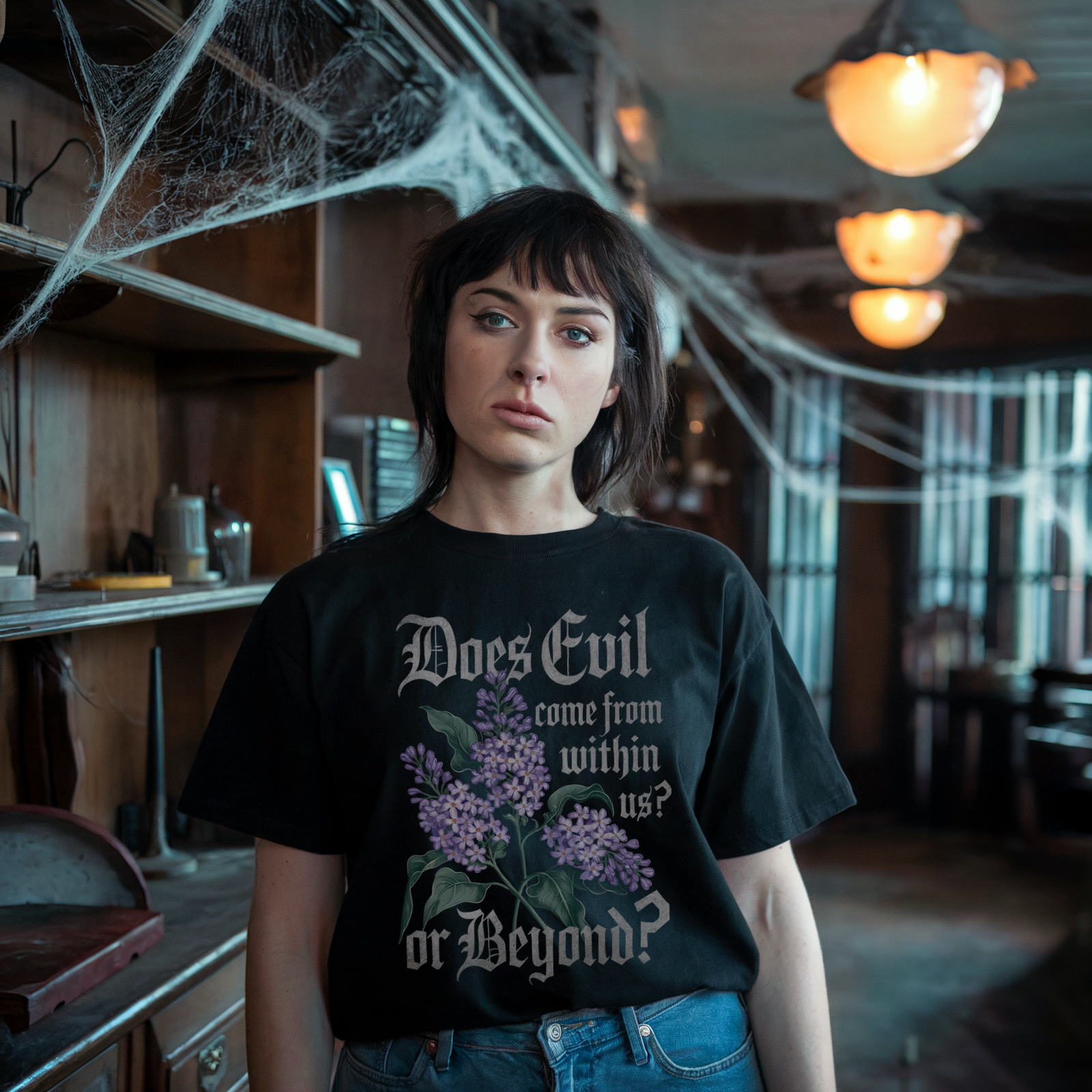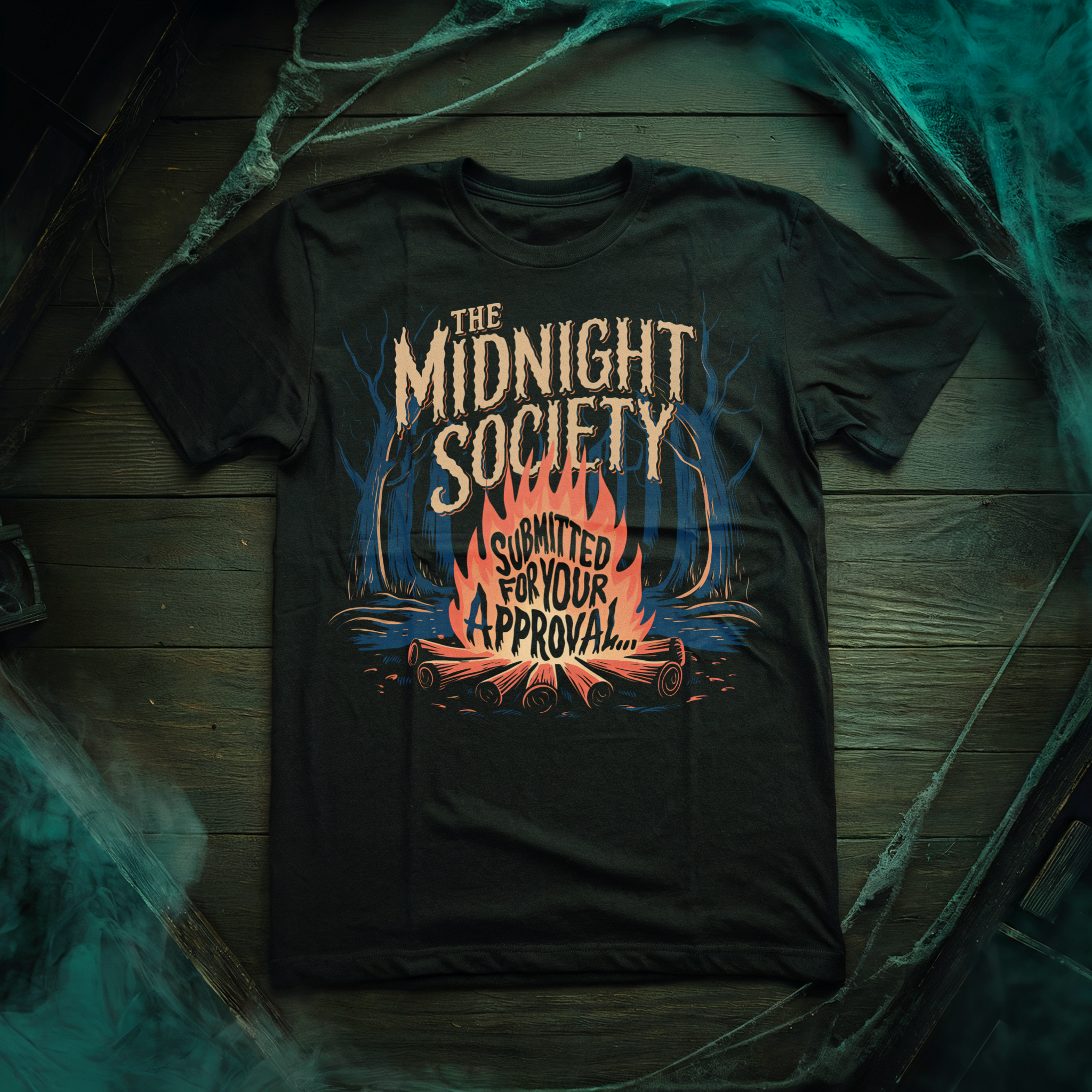We all have a monster inside us. Whether it be something we’re not proud of, an insecurity, a secret, or something darker, that monster grows from the inside out. These factors are ones cultivated from a lesser notion, seeds planted deep within ourselves, and it is only a matter of time before they outgrow their environment. The horror genre has been one of film’s most expressive platforms used to tackle heavy themes, topics, and commentaries. Between the narrative and visual elements of a film, a storyteller holds power in an unlimited canvas meant to relay their craft and message to viewers. Owen Long’s writing and directing debut Seeds observes the manifestation of the monster we all possess, the victim it wishes to claim, and one man’s struggle to keep his hidden, bringing a sad, ugly meaning to the art of producing a tempered creature feature.
Starring Trevor Long (Ozark), Andrea Chen (Your Majesty), Chris McGarry (Lawless), Kevin Breznahan (Winter’s Bone), John Emigh, and Garr Long, Seeds finds an interesting focus in a man, Marcus, who retreats to a family home following a harrowing sexual scenario and is seemingly followed by a tentacled organism. When he agrees to host his brother’s children, Lily and Spencer, the being tormenting Marcus becomes more and more prevalent. The connection and attraction between Marcus and Lily slowly advances, drawing out the monster inside of him and the one lurking within his home.
“Seeds observes the manifestation of the monster we all possess, the victim it wishes to claim, and one man’s struggle to keep his hidden”
The inappropriate bond between Marcus and Lily and the black tentacled being that lurks around them is shrouded in a sinister taboo powered by both proper metaphorical representation and cinematic visualization. The meaning and mechanics of Seeds work in a harmonious rhythm to expand on the Lolita-type dynamics between Marcus and Lily. The obsession and the pain of hiding it from the world takes a horrendous toll of Marcus’ mentality, causing viewers to doubt his sanity as well as the spider-like monster that creeps and crawls its way in and out of the frames. Close up shots, luxe settings, and some tremendous acting at the hands of Long and Chen dramatically support the emotional narrative driving the abject nature of Seeds. Rich visuals and glorious practical effects give this story the necessary horror edge it deserves and even seems to kiss the cheek of Lovecraftian monsters in design.
The nature of abrupt stop transitions and montages of movement allow for a lot of details to be shown in a short span of time. Long makes use of his scenes well to layer suspense and insert some, but sadly few, scenes of gruesome shock value. There is a suspension of intensity as Seeds is more of a roasting simmer than a slow-burn by expectation. The third act fails to honor the ongoing dread and winds up easily collapsing itself on what could have been a powerful ending. Marcus’ decisions become extremely confusing and his ultimate role as the villain and the hero serves no special purpose other than to wrap up the narrative and pass it along. It is a commendable way to end Seeds, but painfully predictable.
https://www.youtube.com/watch?v=7LZ5doiPjgM
Seeds expertly adopts a variety of symbolism to add depth and meaning to its allegorical structure. Atmosphere, physicality, and the presence of nature, both ugly and beautiful, nurtures a deafening mood of loneliness and longing. Seeds’ secretive theme of hiding influences much of the viewer’s imagination and maintains an intriguing engagement throughout. The reflection of a higher meaning gives cause to the scare factor if the spider monster, branding Seeds as more than just a creature feature. The allegory, though a tough one to chew on, is unique and just as terrifying and haunting as the existence of the grotesque organism itself.
The superb cinematic craft present in Seeds is just as simple as it is confrontational. The message behind Marcus‘ illness and his unfortunate struggle to keep it at a distance is abrasive and abhorrent. The jagged meaning behind the beast that Marcus fears is softened by the fluid cinematography and Lily’s forward character. The real tentacled monster hiding in plain sight in Seeds is Marcus‘ ultimate romantic and sexual obsession with not only an underage girl but his niece. Long executes an artful portrait of a lonely man and successfully shows that the seeds of natural perversion need a place to hide in order to grow. The story is dangerous and uncomfortable, two qualities almost all films of the genre should embrace to warrant merit, adding a distinct layer of forbidden taboo.
“It’s terrifying in the worst way as far as hideous stories to be told, so I am still struggling on whether or not that makes Seeds a horror genre success or a failure.”
Long’s purpose is brilliantly portrayed, but once it is exposed I find it extremely hard to support as an individual. Trevor Long does a fantastic job of eliciting strong notes of sympathy for his character, Marcus, yet when the behavior is stripped down it borders a slim, scary line between love and pedophilia. Lily tempts him during her stay and thinks she reciprocates his feelings for her despite not even being old enough to drive. I don’t appreciate Long’s attempt to make this relationship seem natural and beautiful, no matter how great his cinematic techniques are. Lily, as a very young child, presents the first monstrous seed to Marcus and the film ends with a similar starting point. The ugliest part about Seeds, one that makes it difficult to praise wholeheartedly, is the subtle placement of blame upon the victim. I praise a film’s ability to shock as well as ignite thought and discussion, but the events at work in Seeds, though realistically ugly, may be too easily dismissed.
When it comes down to our role in nature there is no simpler way to separate our overall existence: sometimes we hurt one another, sometimes we love one another. The tentacled spider inside of us does come from somewhere, the source of all our primary questions. Seeds is a film made with the valiant effort to answer that question even if the viewer does not like the answer. It is crafted by capable hands and utilizes all of a film’s necessary components to a very worthy degree. As a warning, Seeds explores the psychological tendons of pedophilia with a “mature” type of child and balances that controversy with familial taboos. Seeds will invite you to dig deep down inside and find the monster growing in the dark. The seeds of some, however, may grow into something worse. It’s terrifying in the worst way as far as hideous stories to be told, so I am still struggling on whether or not that makes Seeds a horror genre success or a failure.
What are your thoughts on Seeds? Do you plan to watch Owen Long’s slightly controversial, tentacled tale? Let us know your thoughts over on Twitter, Reddit, or in the Horror Movie Fiend Club on Facebook!








